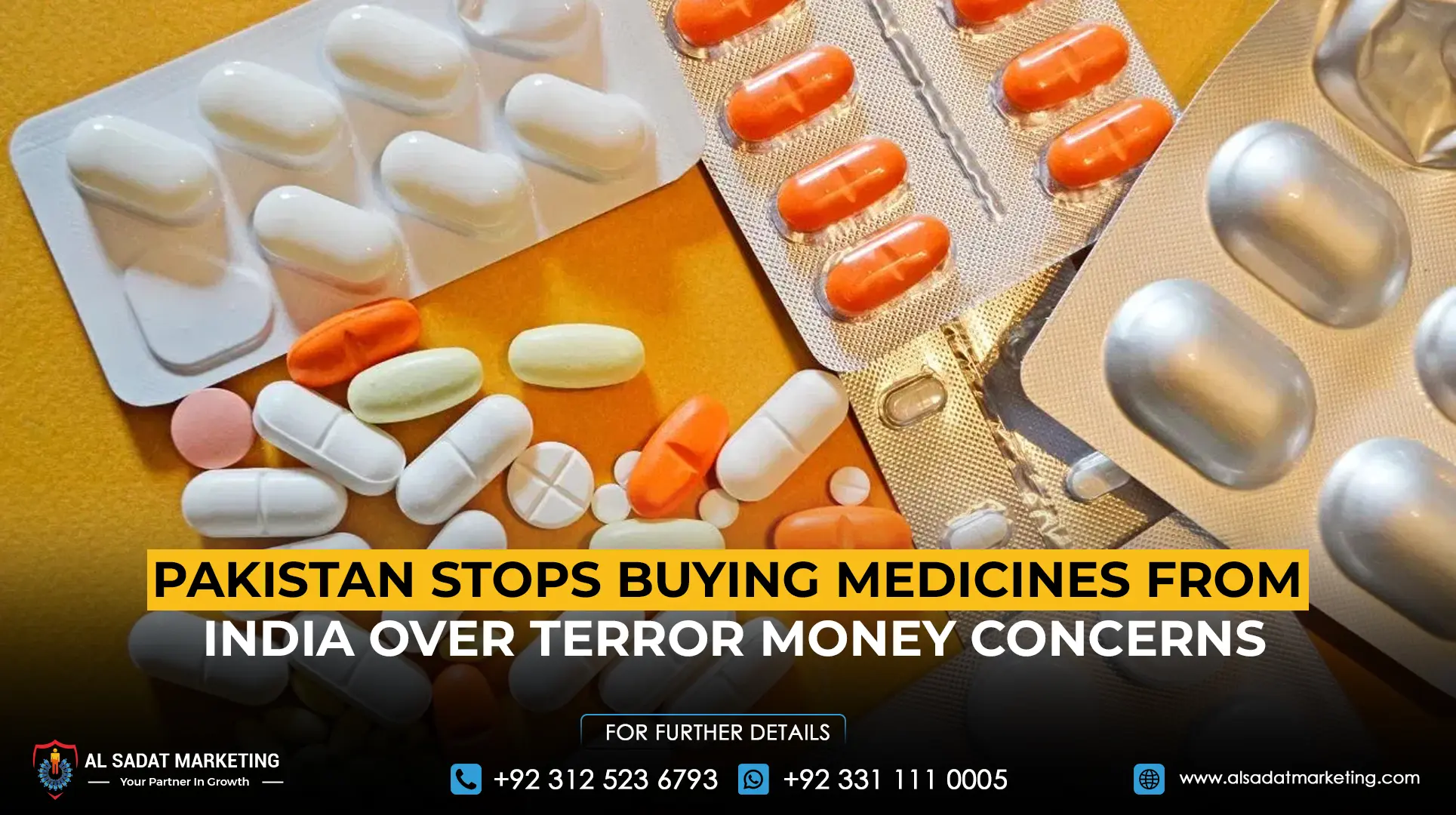In a major realignment of its healthcare and national security policies, Pakistan has imposed a complete ban on the import of active pharmaceutical ingredients (APIs) and finished medicines from India. This move, driven by security concerns, marks a significant shift in the country’s drug procurement strategy, especially as Indian suppliers previously accounted for nearly 60% of Pakistan’s essential drug supplies, including critical treatments such as anti-rabies immunoglobulins, MMR vaccines, Onco-BCG, monoclonal antibodies, and anti-snake venom.
The decision came in the wake of declassified intelligence reports that indicated trade revenues were being funneled through shell companies to fund terrorist activities within Pakistan, including bombings in Karachi and rural highway ambushes. The evidence led Pakistani authorities to swiftly cut pharmaceutical trade ties with India, asserting that continued commerce posed an unacceptable risk.
Also Read: The Rebirth of Heritage Tourism Near Khanpur Dam
In response to the embargo, the Drug Regulatory Authority of Pakistan (DRAP) and the Ministry of National Health Services activated contingency plans that had been developed during the 2019 API shortage. Diplomatic channels moved quickly, securing accelerated pharmaceutical shipments from China, which already supplied 40% of Pakistan’s API needs. Additionally, Bangladesh ramped up its export of generic APIs and formulations, while Malaysia, Indonesia, South Korea, and European nations committed to filling the gap left by Indian producers.
To mitigate potential delays, Pakistan implemented fast-track testing protocols at customs, with government labs operating 24/7 to vet new drug sources. Early reports suggest the strategy is working, with clinics maintaining access to life-saving therapies such as anti-rabies immunoglobulin and cancer treatments. Supply chains have also become more predictable, eliminating past uncertainty tied to fluctuating India-Pakistan relations.
However, the shift has introduced new challenges. APIs from China and Europe are 20-30% more expensive than their Indian counterparts, placing additional financial pressure on already strained hospital budgets. Meanwhile, DRAP is dealing with a surge in approval requests, leading to bottlenecks in the accreditation of new pharmaceutical suppliers. The increased volume of imports has also overwhelmed port facilities, extending delivery timelines for some critical consignments.
Despite these setbacks, Pakistani officials insist the security benefits outweigh the costs. A memo from the National Security Division emphasized that allowing a single foreign supplier undue influence over national health systems was no longer acceptable. Islamabad maintains that economic interdependence must not be one-sided, particularly if it can be exploited to fund violence.
Also Read: How to Use Bank Financing to Expand Your Property Portfolio
India’s pharmaceutical industry has expressed concern over the embargo, warning of job losses and factory closures. Nonetheless, Pakistan is doubling down on diversifying its import sources across sectors, including textiles, electronics, automotive parts, and agricultural equipment from countries like Turkey, Malaysia, Japan, China, and Europe.
Global health experts, including those from the World Health Organization, have urged Pakistan to develop its domestic pharmaceutical capacity to ensure long-term sustainability. In response, the government has unveiled the “API Vision 2025” initiative, aiming to build at least three API production facilities by 2027. Partnerships with Chinese and South Korean companies are being negotiated for technology transfer, while local training programs are expanding to meet workforce needs.
Although early trials of domestically produced antibiotic precursors have shown promise, full-scale production remains 18 to 24 months away. In the meantime, Pakistan is exploring measures such as establishing dedicated pharma terminals at ports, subsidizing high-cost imports, and hiring more analysts at DRAP to speed up regulatory approvals.
The pharmaceutical embargo on India is not just a trade decision but a comprehensive strategy that intertwines national security with healthcare policy. By reducing reliance on a single country, Pakistan is aiming to build a more resilient, secure, and autonomous pharmaceutical supply chain. For other countries confronting similar threats, Islamabad’s bold move offers a potential template for balancing sovereignty, security, and public health.










